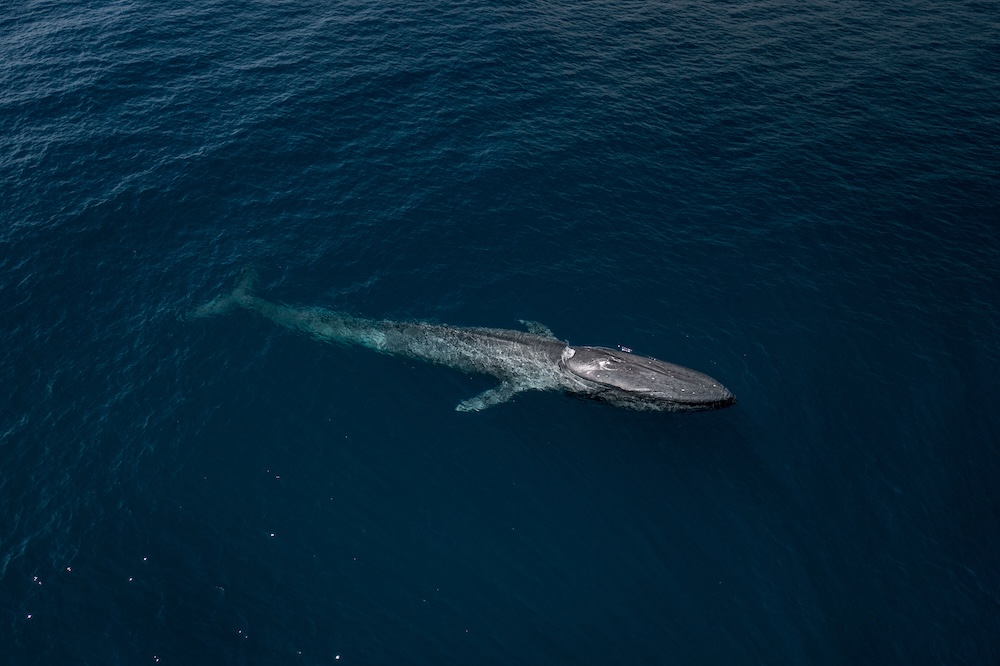There’s a sound missing from the ocean. One that once echoed across entire basins. One that belonged to giants.
Blue whales, the largest animals to ever live on Earth, are going quiet. Not because they’ve gone extinct. Not because they’re safe. But because something is very wrong.
In recent years, scientists have discovered that blue whale vocalizations have dropped sharply — by as much as 40% during marine heatwaves. These giants of the deep are no longer singing as they once did. And while silence might seem peaceful on the surface, in this case, it’s more like a cry that isn’t being heard.
Why Blue Whales Sing
Blue whales don’t just vocalize for fun. Their deep, resonant calls — some of the loudest sounds made by any animal — help them locate each other across hundreds, sometimes thousands of miles. It’s how they find mates, coordinate migration, and perhaps even stay emotionally connected across the vastness of the ocean.
So when their voices go silent, something is terribly off.
In a six-year underwater study along the California coast, acoustic monitors revealed that blue whales stop calling during periods of intense ocean heat. These findings were most prominent during the marine heatwave known as The Blob, which spanned from 2014 to 2016. But recent data shows it wasn’t a one-off event. Similar silences are now being recorded across the Pacific, in New Zealand waters, and beyond.
The Heat is Stealing Their Food
At the heart of this issue is krill — the tiny shrimp-like crustaceans that blue whales depend on for survival.
Krill thrive in cold, nutrient-rich waters. But when marine heatwaves strike, those cold upwellings weaken. The ocean stratifies. Nutrients sink out of reach. And krill populations plummet. Without krill, whales are left hungry.
When food is scarce, whales must work harder and dive longer to feed. This drains their energy — and they stop singing.
In other words: the silence is a sign of starvation.
What Silence Signals
Blue whales are endangered. Always have been since commercial whaling nearly wiped them out in the 20th century. But now, it’s not harpoons that threaten them — it’s heat. And hunger.
Silence may seem subtle, but it’s a warning siren. Here’s why:
- Reduced Communication: Fewer calls mean fewer chances to mate and reproduce.
- Energy Conservation: Singing requires energy. Hungry whales conserve every calorie.
- Low Birth Rates: Without enough nutrition, blue whales delay or forgo reproduction.
- Population Collapse Risk: If this trend continues, we could see steep, quiet declines in whale numbers without any dramatic beachings or mass deaths.
This is how extinction can begin — not with a bang, but with a hush.
It’s Not Just the Whales
Blue whales are a keystone species. What affects them ripples across the entire marine web.
- Krill Loss Affects Everyone: From penguins to seals to fish, krill are a foundational food source.
- Heatwaves Are Increasing: Climate change is making marine heatwaves more frequent, longer, and more intense.
- Acoustic Ecosystems Are Fading: Ocean soundscapes are a reflection of ecological health. Silence means disruption.
So when blue whales stop singing, they’re not just responding to their own hunger. They’re speaking for the entire ocean.
Listening as a Form of Conservation
One of the few ways we even noticed this trend is because scientists were listening. Acoustic monitoring has become an essential tool in marine biology — like placing stethoscopes on the sea.
This work reveals patterns we can’t see with our eyes alone:
- Where whales are foraging
- How heatwaves impact behavior
- When ecosystem changes are reaching a breaking point
And yet, even with this knowledge, we’re not moving fast enough to change the conditions that are driving these giants into silence.
The Emotional Weight of It All
There’s something profoundly human about what’s happening here — and something profoundly heartbreaking.
Imagine being hungry, unable to find food, separated from your family across thousands of miles, and too weak to call out. That’s what’s happening beneath the surface of our warming seas. These aren’t just abstract data points. They’re experiences. They’re lives.
Blue whales live for decades. They remember. They feel. And we’re watching — or rather, hearing — the slow unraveling of their world in real time.
What Doesn’t This Mean?
It’s important not to misinterpret the silence:
- It doesn’t mean they’re gone — but it could mean they’re disappearing slowly, in ways that don’t immediately show up in population counts.
- It doesn’t mean whales are fine in other places — this phenomenon is now being observed across global populations.
- It doesn’t mean whales are adapting successfully — silence is not resilience. It’s exhaustion.
What Can Be Done?
This isn’t just about protecting whales. It’s about healing the ocean — and by extension, our climate.
Here’s what scientists and advocates are urging:
- Rapidly reduce greenhouse gas emissions to slow warming oceans.
- Expand marine protected areas, especially around krill-rich feeding grounds.
- Support international efforts to regulate krill fishing.
- Fund more acoustic monitoring — it’s one of the only real-time indicators we have.
- Educate — like you’re doing now — by sharing and understanding the weight of this moment.
Final Thoughts: When the Sea Goes Quiet, We Must Speak Up
Nature has always given us signals. Trees fall. Birds migrate. Flowers bloom. Whales sing.
Now, those songs are fading.
It’s easy to overlook silence. It’s not as loud as death. Not as newsworthy as a stranded whale. But it is just as urgent — maybe even more so.
Because silence is what happens right before something disappears.
We still have time to listen. We still have time to act. But only if we understand that the ocean’s quiet is not peace — it’s a plea.
Let’s not wait for extinction to speak for them.
Let’s speak now.









Reader Interactions